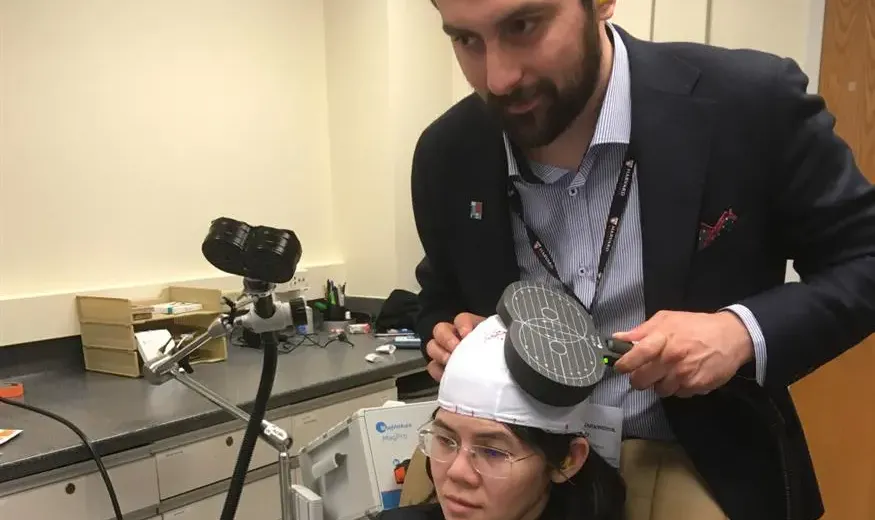Background: This open-label naturalistic study assesses the practical feasibility, tolerability, and clinical effectiveness of home-administered transcranial direct current stimulation (tDCS) with asynchronous remote supervision, in the treatment of depression.
Methods: Over 3 weeks, 40 patients with depression received psychotherapy and 20 also received daily bi-frontal tDCS stimulation of the dorsolateral prefrontal cortex. These patients received tDCS for 30 min per session with the anode placed over F3 and the cathode over F4, at an intensity of 2 mA for 21 consecutive days. We measured patients’ level of depression symptoms at four time points using the Beck Depression Inventory, before treatment and at 1-week intervals throughout the treatment period. We monitored practical feasibility such as daily protocol compliance and tolerability including side effects, with the PlatoScience cloud-based remote supervision platform.
Results: Of the 20 patients in the tDCS group, 90% were able to fully comply with the protocol and none dropped out of the study. No serious adverse events were reported. Patients in the tDCS group showed a significantly greater reduction in depression symptoms after 3 weeks of treatment, compared to the treatment as usual (TAU) group [t(57.2) = 2.268, p = 0.027]. The tDCS group also showed greater treatment response (50%) and depression remission rates (75%) compared to the TAU group (5 and 30%, respectively).
Conclusions: These findings provide a possible indication of the clinical effectiveness of home-administered tDCS for the treatment of depression, and its feasibility and tolerability in combination with asynchronous supervision.




